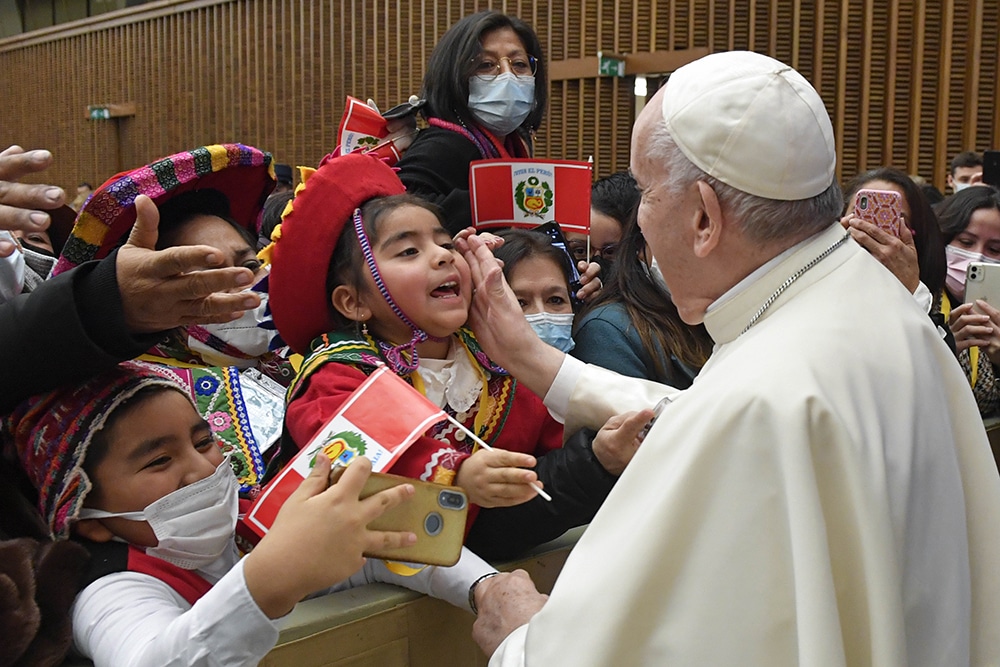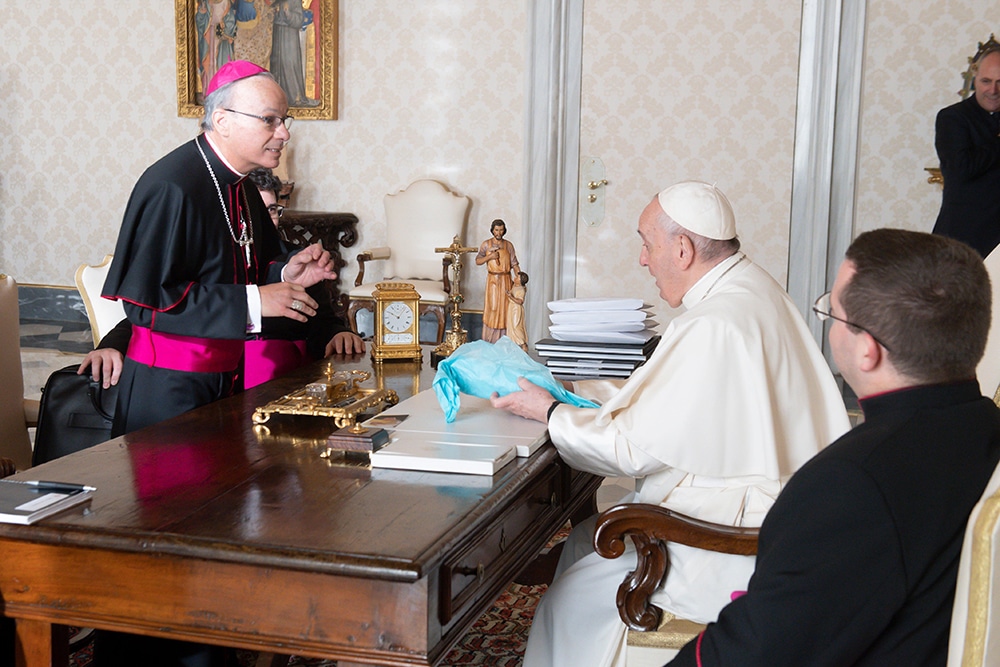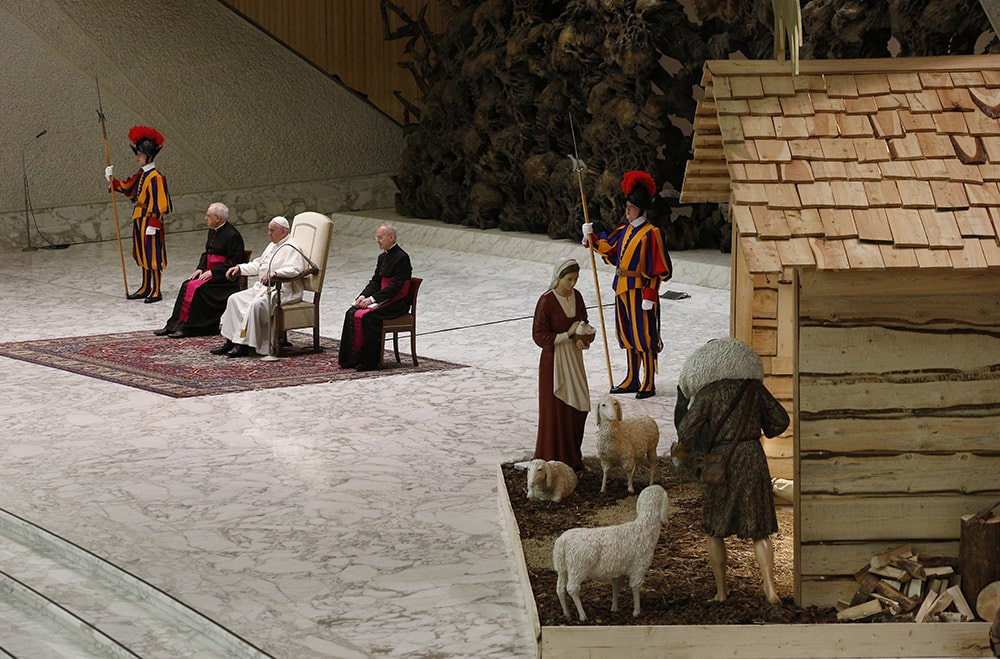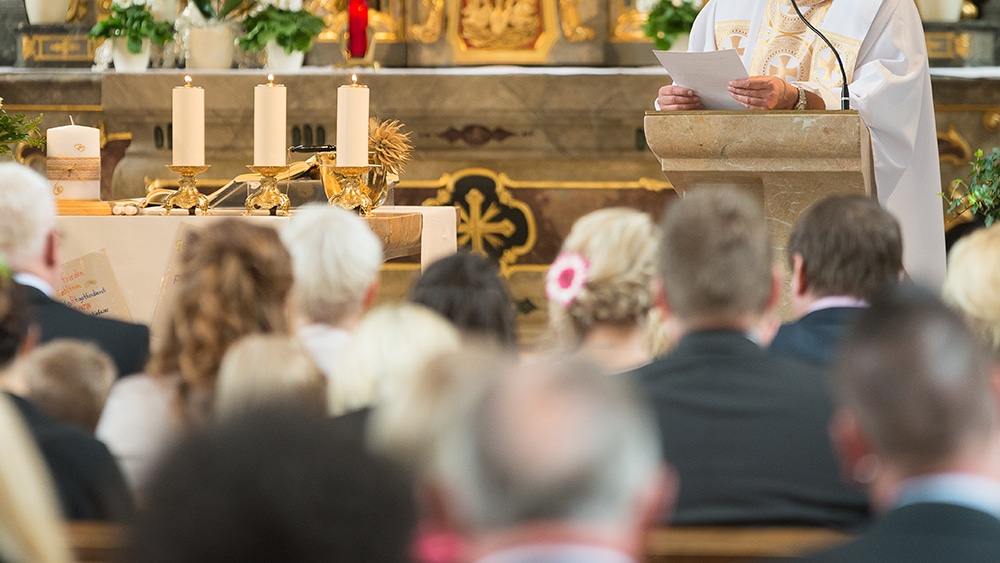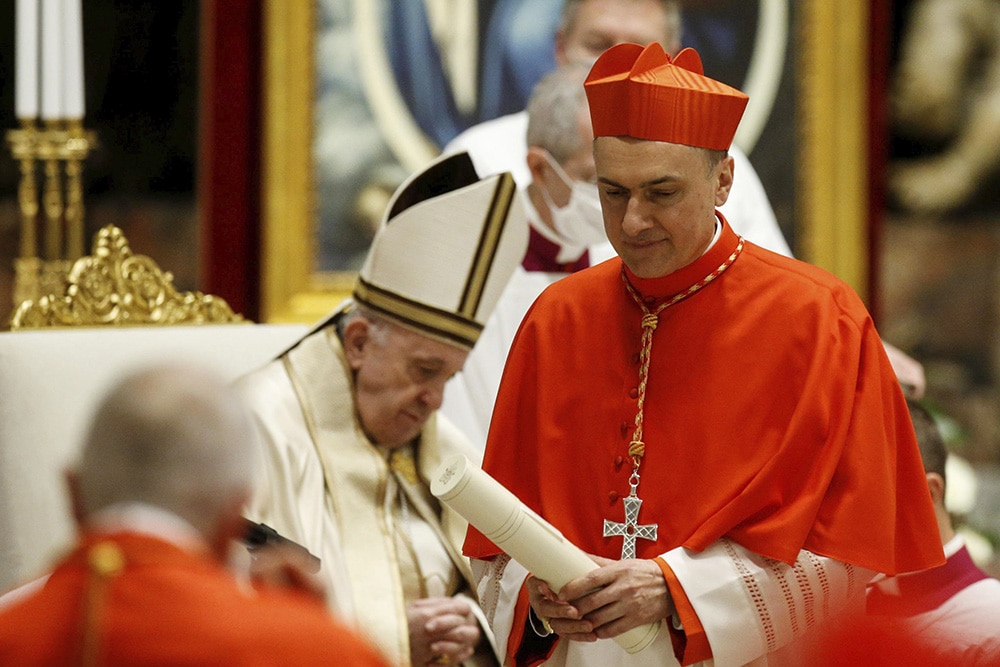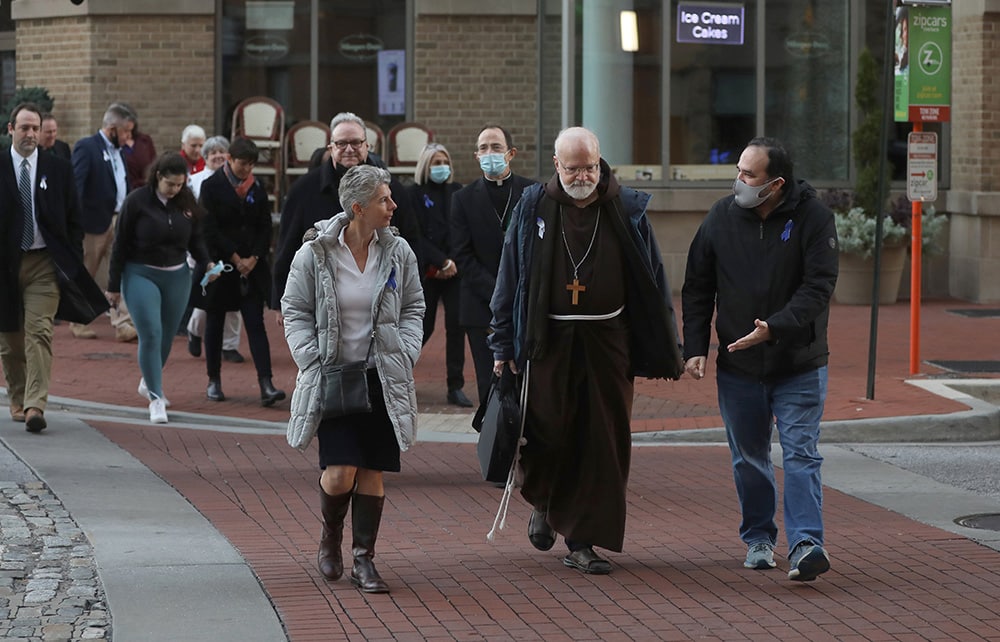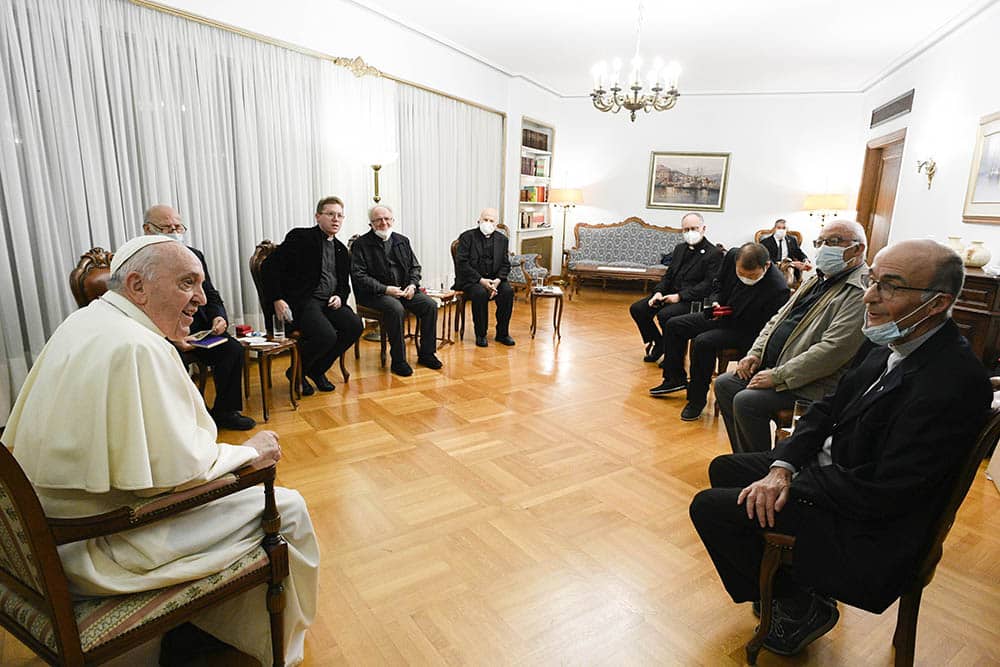Although surgery last July slowed Pope Francis at times in 2021, items already on the papal agenda for 2022 point to a resumption of the 85-year-old pontiff’s typically demanding pace. The activities include foreign travels, major meetings and conferences, and probably a consistory for the formal installation of new cardinals, thought likely to be early in the new year.
Francis appears largely recovered from the three-hour operation last July 4 in which a large section of his colon was removed to eliminate severe constriction resulting from diverticulitis. After 11 days in Rome’s Gemelli Hospital, where he occupied the same suite that Pope St. John Paul II used during his hospital stays, the pope returned to the Vatican and there gradually resumed his work schedule.
But there were obvious limits at first. Environment is one of the Pope’s signature issues, and he had hoped to go to Glasgow, Scotland, in November for the COP26 international climate conference. But apparently not feeling up to the trip just yet, he sent Vatican Secretary of State Cardinal Pietro Parolin instead.
New cardinals expected
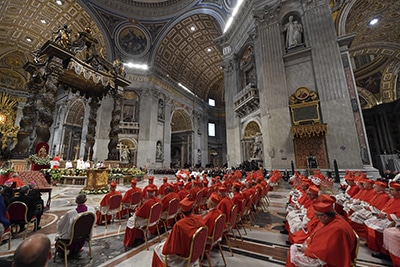
Up to 2021, Francis had convened a consistory for new cardinals yearly during his pontificate, but last year there was none. A consistory now seems probable in the months ahead, however — perhaps before Lent begins on Ash Wednesday, which in 2022 will be March 2.
Currently, there are 121 cardinals under the age of 80 and therefore eligible to vote in a conclave to elect a new pope. That is one more than the number set by Pope John Paul II. But by mid-April — and barring new appointments before then — the total will have fallen to 117. At least two current Vatican agency heads are in line for red hats, and Francis likes to name cardinals from places that haven’t had them before, so it will be a surprise if any Americans make the next list.
A continued focus on migrants
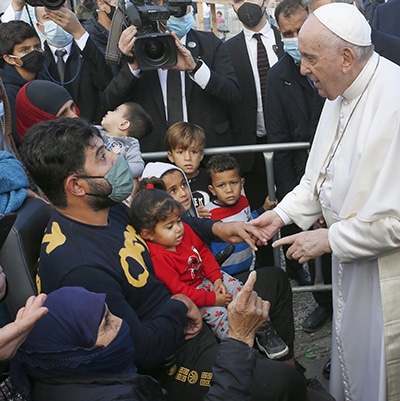
Having once again highlighted the plight of refugees and migrants during his pre-Christmas visit to Cyprus and Greece, the pope on Feb. 27 will go to Florence for a conference on that issue involving bishops and mayors from countries of the Mediterranean region. A similar meeting took place in Bari, Italy, in February 2020.
While in Florence, Francis is expected to meet with a group of migrants. In one of his Sunday Angelus talks last October, the pope complained that some migrants are forced to live in “real concentration camps” and urged that people fleeing “unsafe” countries have “dignified living conditions, alternatives to detention, regular migration routes, and access to asylum.”
Travel plans
For the pope, as well as other international travelers, the pandemic introduced a new element of uncertainty into foreign travel. Only last March did he make his first trip outside Italy — to Iraq — since the arrival of the coronavirus. Discussing his 2022 travel plans in October with an Argentine news agency, he indicated that, circumstances permitting, he has several trips now in view 2022.
Prominent on his list were Papua New Guinea and East Timor — places he planned to visit in late 2020 until virus-imposed restrictions ruled that out. Other potential destinations in 2022, he said, are the Democratic Republic of the Congo and Hungary — the latter a country whose capital, Budapest, he visited last September for the closing Mass of the International Eucharistic Congress. No dates have yet been announced for any of these trips.
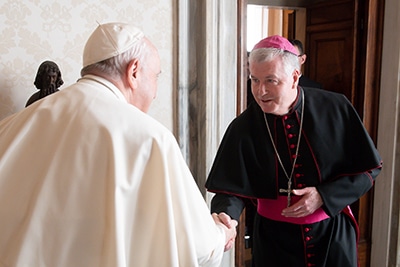
Also in the year ahead, Francis may travel to Canada on a visit intended to heal relations with Canadian indigenous peoples offended by mistreatment of indigenous children in government residential schools operated by religious orders. More than half the estimated 150,000 children were in Catholic-run institutions. Other schools were staffed and operated by the United Church of Canada and the Presbyterian and Anglican churches. The last of the residential schools, which at one time numbered 139, closed in the 1990s.
Last October, the Vatican announced that Francis had accepted an invitation to visit Canada extended by the Canadian Conference of Catholic Bishops. No date for the visit has been announced at the time this was written. A group of Canadian indigenous leaders had planned to meet with Pope Francis at the Vatican on Dec. 20, but that meeting was canceled in early December over “uncertainty and potential health risks surrounding international travel amid the recent spread of the Omicron variant,” according to a statement released by the Canadian bishops.
Other priorities
Besides travel, the papal agenda includes much else in 2022.
Next May 15, Francis will canonize seven new saints, including Charles de Foucauld, Indian martyr Devasahayam Pillai and five Italian and French founders of religious communities.
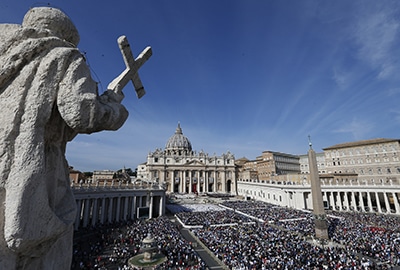
Blessed Charles de Foucauld was a French army officer, Trappist monk and hermit. Born in Strasbourg, France, in 1858, he lived a playboy’s life as a young man but experienced a profound religious conversion, was ordained a priest in 1901 and spent his last years living at a remote site in North Africa, where he was killed by bandits in 1916.
Blessed Devasahayam was born in 1712 to upper-caste Hindu parents in India. He became a soldier of the local Hindu ruler but converted to Christianity and was tortured and killed for refusing to repudiate the Faith.
The pope will welcome and address the World Meeting of Families, scheduled to take place in Rome from June 23-27 with the theme “Family Love: A Vocation and a Path to Holiness.” International family congresses are held at different sites every three years, with the most recent in Dublin in 2018.
Along with all this, Francis in 2022 is sure to continue promoting the worldwide exercise in “synodality” — participatory, consultative decision-making — that he has directed take place in parishes and dioceses around the globe leading up to a bishops’ synod in Rome in late 2023.
Suggesting the scope of the papal agenda are the monthly prayer intentions designated for the year ahead by the Pope’s Worldwide Prayer Network (previously, the Apostleship of Prayer). These range from “For a Christian response to bioethical challenges” in March to “For small businesses” in August and “For the abolition of the death penalty” in September.
Russell Shaw is a contributing editor for Our Sunday Visitor.

